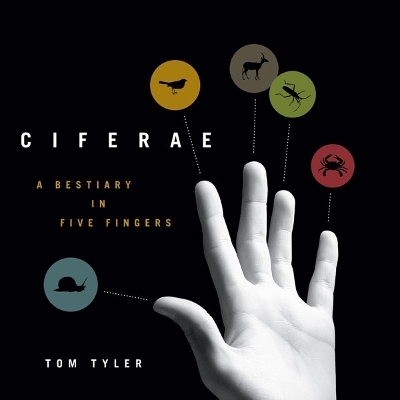
CIFERAE
University of Minnesota Press (Verlag)
978-0-8166-6544-0 (ISBN)
The Greek philosopher Protagoras, in the opening words of his lost book Truth, famously asserted, “Man is the measure of all things.” This contention—that humanity cannot know the world except by means of human aptitudes and abilities—has endured through the centuries in the work of diverse writers. In this bold and creative new investigation into the philosophical and intellectual parameters of the question of the animal, Tom Tyler explores a curious fact: in arguing or assuming that knowledge is characteristically human, thinkers have time and again employed animals as examples, metaphors, and fables. From Heidegger’s lizard and Popper’s bees to Saussure’s ox and Freud’s wolves, Tyler points out, “we find a multitude of brutes and beasts crowding into the texts to which they are supposedly unwelcome.”
Inspired by the medieval bestiaries, Tyler’s book features an assortment of “wild animals” (ferae)—both real and imaginary—who appear in the works of philosophy as mere ciferae, or ciphers; each is there deployed as a placeholder, of no importance or worth in their own right. Examining the work of such figures as Bataille, Moore, Nietzsche, Kant, Whorf, Darwin, and Derrida, among others, Tyler identifies four ways in which these animals have been used and abused: as interchangeable ciphers; as instances of generalized animality; as anthropomorphic caricatures; and as repetitive stereotypes. Looking closer, however, he finds that these unruly beasts persistently and mischievously question the humanist assumptions of their would-be employers.
Tyler ultimately challenges claims of human distinctiveness and superiority, which are so often represented by the supposedly unique and perfect human hand. Contrary to these claims, he contends that the hand is, in fact, a primitive organ, and one shared by many different creatures, thereby undercutting one of the foundations of anthropocentricism and opening up the possibility of nonhuman, or more-than-human, knowledge.
Tom Tyler is senior lecturer in philosophy and culture at Oxford Brookes University.
Contents
Acknowledgments
Prelude
1. VALLATUS INDICIBUS ATQUE SICARIISSurrounded by Informers and Assassins
Like Water in Water
Into Your Hand They Are Delivered
Deciphering Deciphering
Prickly Porcupines and Docile Dogs
An ABC of Animals
If a Lion Had Hands
Quia Ego Nominor Leo
Taking Animals in Hand
2. RIDETO MULTUM ET DIGITUM PORRIGITO MEDIUM Laugh Loudly and Flip Them the Bird
Two Hands Are Better Than One
The Truth about Mice and Ducks
The Philosopher and the Gnat
The Birds and the Bees
The Back of a Tiger
3. MEDICO TESTICULI ARIETINIOn the Ring Finger a Ram’s Testicles
The Digestive System of the Mind
An Unknown Something
Praying to the Aliens
Nothing to Phone Home About
From Noumena to Nebula
Those Who Like to Think So
One Ring to Rule Them All
4. DIGITO MINIMO MUNDUM UNIVERSUM EXCITESWith Your Little Finger You Would Awaken the Whole World
The Eyes Have It
A Tale of Three Fish
Handing On and Gathering In
Bird Brains
Getting Stuck In
5. MANUS PARVA, MAIORI ADIUTRIX, POLLEXThe Thumb Is a Little Hand, Assistant to the Greater
To We or Not to We
If I Had a Hammer
The Rule of Thumb
Four Hands Good, Two Hands Bad
Report to an Academy
Coda
Notes
Bibliography
Publication History and Permissions
Index
| Reihe/Serie | Posthumanities |
|---|---|
| Verlagsort | Minnesota |
| Sprache | englisch |
| Maße | 216 x 216 mm |
| Themenwelt | Geisteswissenschaften ► Philosophie ► Geschichte der Philosophie |
| Geisteswissenschaften ► Philosophie ► Philosophie des Mittelalters | |
| Geisteswissenschaften ► Philosophie ► Philosophie der Neuzeit | |
| ISBN-10 | 0-8166-6544-3 / 0816665443 |
| ISBN-13 | 978-0-8166-6544-0 / 9780816665440 |
| Zustand | Neuware |
| Informationen gemäß Produktsicherheitsverordnung (GPSR) | |
| Haben Sie eine Frage zum Produkt? |
aus dem Bereich


